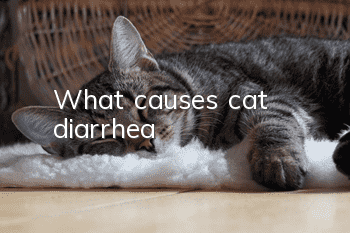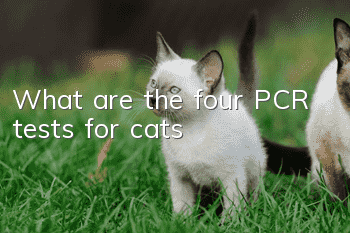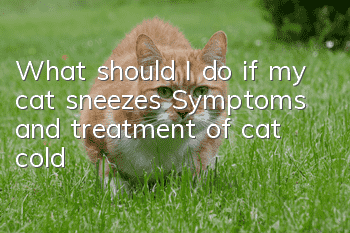What causes cat diarrhea?

Cat diarrhea may be caused by stress response, improper food change, internal parasite infection, seasonal colds, indigestion, gastroenteritis, viral diseases, etc. The owner needs to make a basic judgment based on the actual situation and take the cat to the pet hospital for examination and diagnosis in time to avoid delaying the condition. In addition, during the normal feeding and management process, owners should also pay attention to observe whether the cat has vomiting, diarrhea, etc. If any problem is found, seek medical treatment in time.
1. Stress response
Cats are animals that are prone to stress reactions. If the living environment is suddenly changed or the cat is frightened, it can easily cause gastrointestinal problems and cause emotional diarrhea. At this time, the owner needs to calm the cat's emotions, try to let the cat rest in a quiet place, and do not stimulate it.
2. Improper food replacement
If you change the cat's food suddenly without a transition period, it will also cause diarrhea. If this is the case, it is recommended to first feed the cat an appropriate amount of pet-specific probiotics to regulate the gastrointestinal tract, and change the food in a step-by-step manner.
3. Internal parasite infection
If the cat has not been dewormed for a long time, it will cause diarrhea when the cat is infected with parasites. In addition to diarrhea, cats can also be found to have insect eggs in their feces, and they may also experience symptoms such as loss of appetite and weight loss. Therefore, owners must regularly deworm their cats internally and externally.
4. Catch a cold during the change of seasons
When the seasons change, cats are prone to catching colds due to the large temperature changes. For diarrhea caused by catching a cold, you can usually find that the cat's nose will be dry and it will occasionally sneeze. Therefore, owners must keep their cats warm when the temperature difference changes greatly.
5. Indigestion
Cats eating some food that is not easy to digest or eating irregularly can irritate their gastrointestinal tract and cause diarrhea. In response to this situation, the owner can give the cat some probiotics orally to regulate the gastrointestinal tract, and pay attention to the cat’s eating habits.
6. Gastroenteritis
Typical symptoms of cats suffering from gastroenteritis are vomiting, loose stools, and bloody stools, accompanied by listlessness and loss of appetite. If you find that your cat has the above symptoms, you should seek medical advice as soon as possibleTake your cat to the pet hospital for treatment from time to time. Severe gastroenteritis may endanger the cat's life.
7. Suffering from viral diseases
Cats may also have diarrhea when they suffer from viral diseases, such as feline distemper. If the cat has not been fully vaccinated and is accompanied by uncomfortable symptoms such as blood in the stool, vomiting, and elevated body temperature, it may be caused by a viral disease. It is recommended to send the cat to the doctor in time for infectious disease screening and timely treatment after diagnosis.
- Will two female cats fight?
- Why are British Shorthair milky whites so cheap?
- Why do cats meow? Why does the cat meow so miserably?
- How to tell if there are fleas on a cat?
- How to train a cat? Some basic training methods for cats!
- Will a cat get lonely at home?
- Why do cats like to chase their tails? Maybe they use themselves as toys.
- Tips for bathing cats
- Is it easy to raise an Ossiasian cat? What are its characteristics | Feeding pictures
- Is the Munchkin cat easy to raise? Munchkin cat pictures | price | introduction



